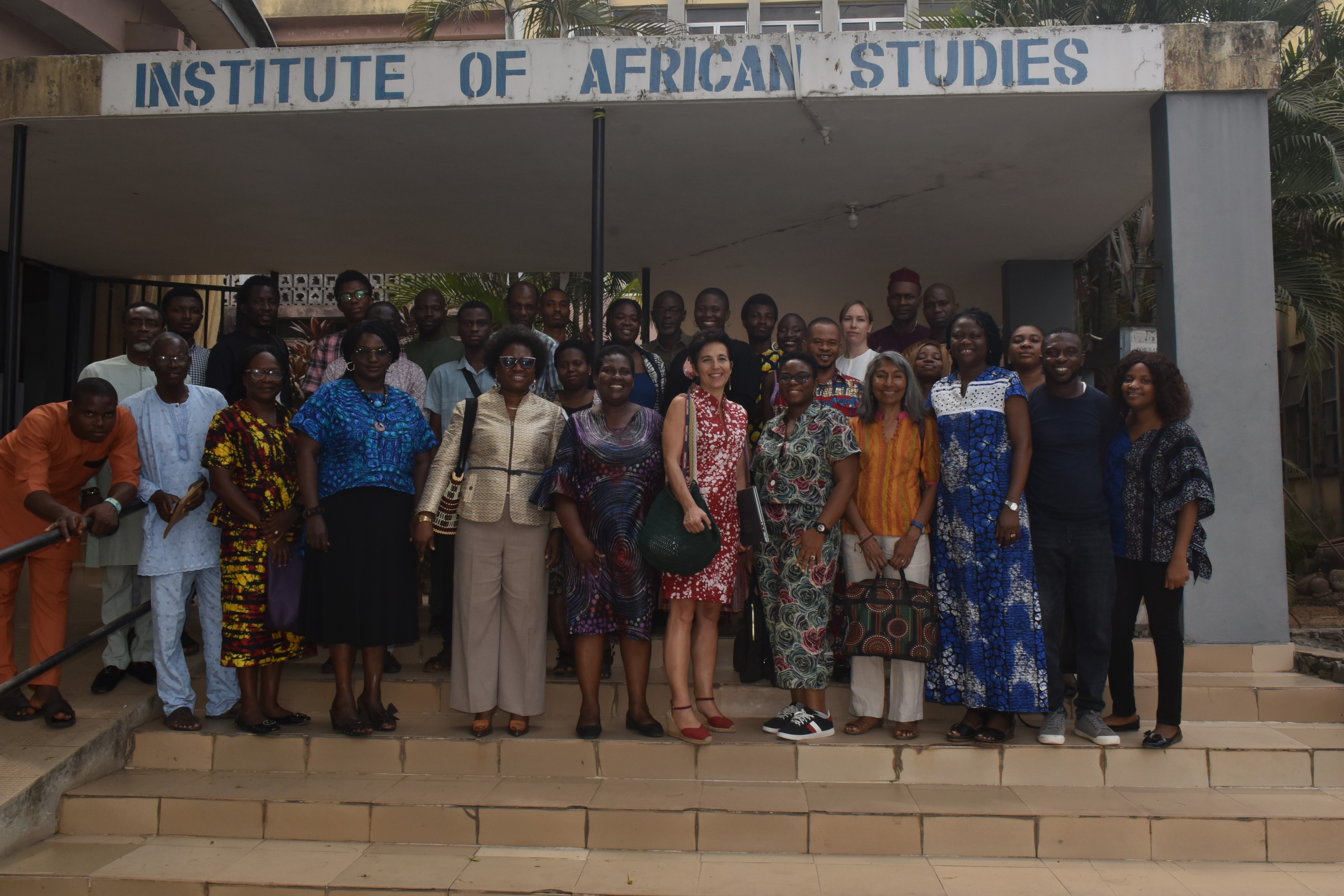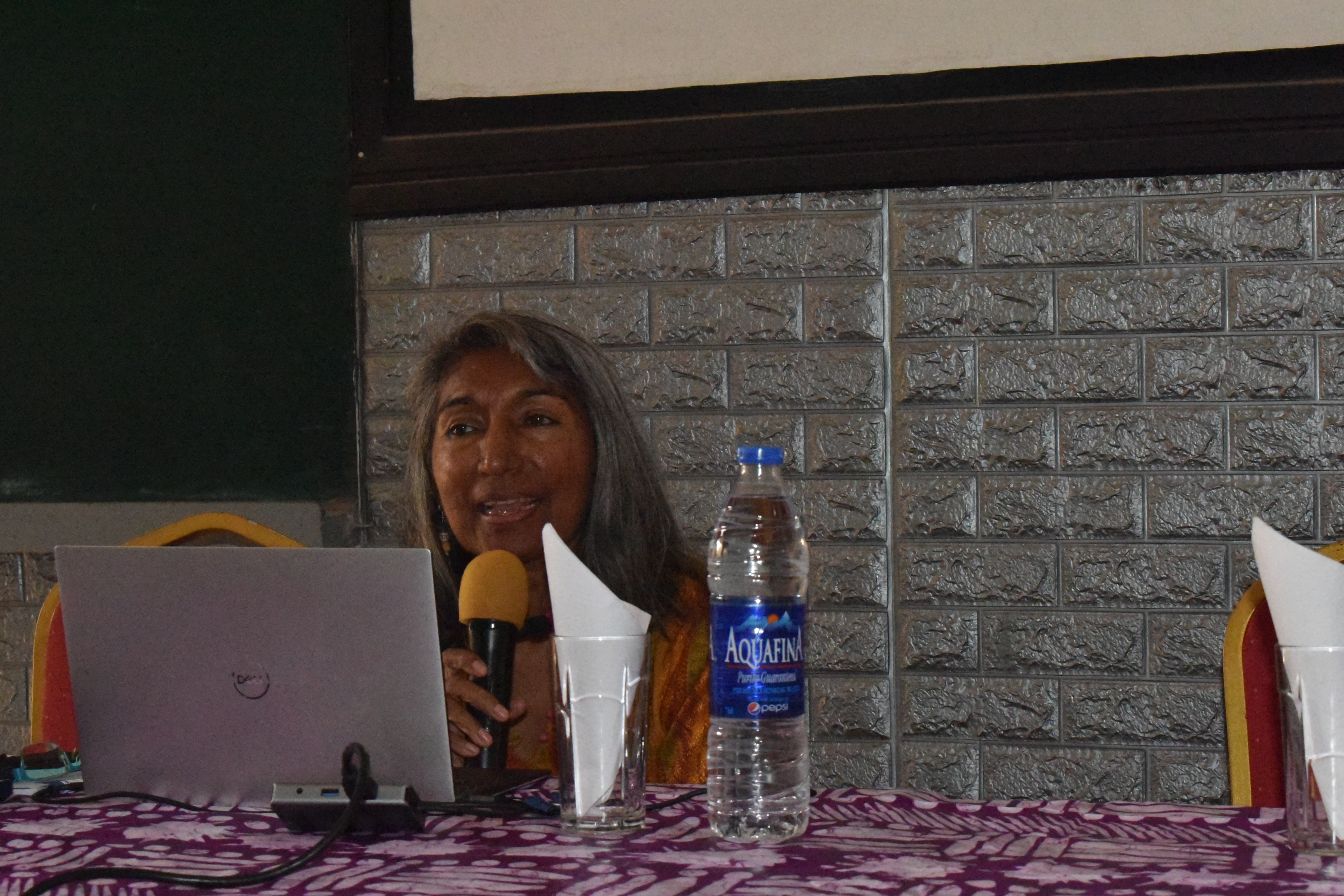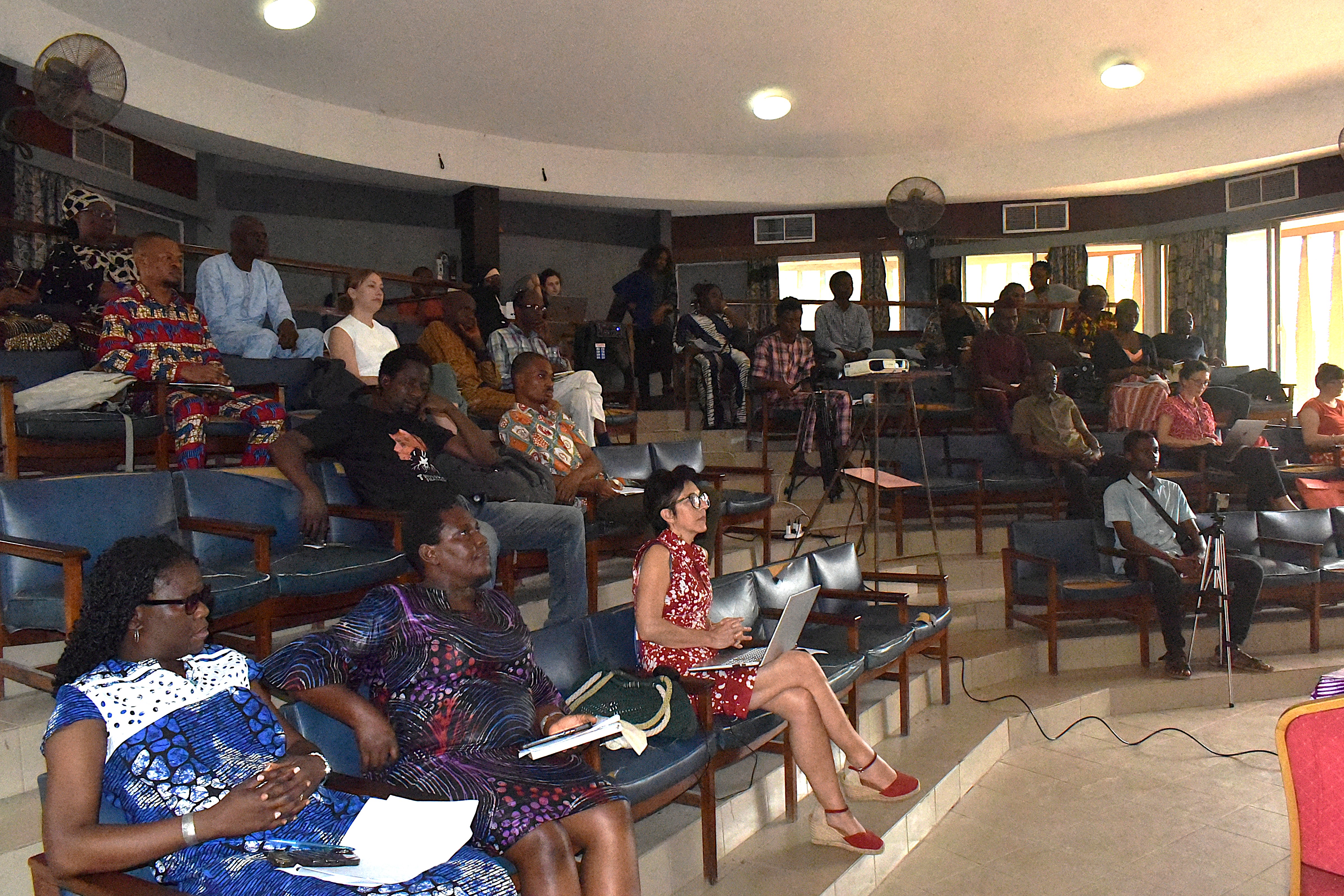IFRA & IAS Seminar - Critical Decolonialities - Charmaine Pereira
 On 30 January, IFRA-Nigeria and the Institute of African Studies (IAS), hosted the first session of their seminar series on “Critical decolonialities”. The event featured Dr Charmaine Pereira, an esteemed feminist scholar based in Abuja, and Dr Oluwatoyin C. Olajide of Obafemi Awolowo University as her discussant. In her presentation, Dr Pereira focused on the general history and issues of decolonial feminism. She described the movement's role in Nigeria, through key figures like Funmilayo Ransome-Kuti and Bolanle Awe. Presenting a thorough review of the topics of feminist knowledge production in Nigeria - Boko Haram, conceptions of gender in pre-colonial societies, contesting State brutality and much more - she raised very interesting and relevant questions regarding modern challenges in Nigeria and the future of decolonial feminism. She concluded by detailing the key institutional spaces where changes can either be made or hindered.
On 30 January, IFRA-Nigeria and the Institute of African Studies (IAS), hosted the first session of their seminar series on “Critical decolonialities”. The event featured Dr Charmaine Pereira, an esteemed feminist scholar based in Abuja, and Dr Oluwatoyin C. Olajide of Obafemi Awolowo University as her discussant. In her presentation, Dr Pereira focused on the general history and issues of decolonial feminism. She described the movement's role in Nigeria, through key figures like Funmilayo Ransome-Kuti and Bolanle Awe. Presenting a thorough review of the topics of feminist knowledge production in Nigeria - Boko Haram, conceptions of gender in pre-colonial societies, contesting State brutality and much more - she raised very interesting and relevant questions regarding modern challenges in Nigeria and the future of decolonial feminism. She concluded by detailing the key institutional spaces where changes can either be made or hindered.
Dr Olajide offered insightful reflections on the presentation, raising a series of questions and comments on fascinating topics like how women’s self-perception is shaped by patriarchy and colonialism, the construction of African gender and sexuality, and the recognition of some forms of domination on women’s bodies even before colonialism. Finally, the in-person and zoom participants had the opportunity to ask questions to our two speakers.
To read a more detailed summary of the event, please click below. The full conference is also available on our Youtube channel.
The event started with introductions by the moderator, Dr Abiola Victoria Ayodokun, followed by the opening remarks by Dr Olutayo on behalf of the director of the Institute of African Studies (IAS), University of Ibadan, Nigeria, Prof Sola Olorunyomi. Dr Barbara Morovich, the director of IFRA-Nigeria introduced the seminar series, which aims to open the door to new questions on decolonialities by presenting African voices and embracing a multidisciplinary perspective. She noted that since the challenges around decoloniality go largely beyond the academic world, the series will involve artists, activists and any other actors of civil society.
Dr Pereira began her talk by presenting various definitions of "decolonial" from several researchers, before defining her own position in the debate. She is a recognized researcher in the field, with an extensive academic career, and has also co-edited Jacketed Women: Qualitative Research Methodologies on Sexualities and Gender in Africa. However, her engagement is not only academic: she is also an editor of Feminist Africa, the Chair of the Working Group of the Legislative Advocacy Coalition on Violence Against Women, a member of the Women and Laws Project, involved in Baobab's for Women's Human Rights and in several African Feminist Centres.

At the heart of this seminar is questioning decolonial feminism in Nigeria, its specificities, its past and how it relates to current issues. Dr Pereira began with the history of women's movement in Nigeria, touching on notable events such as the Women's War and campaigns for women's suffrage in the north and south of the country. She explored some fascinating figures such as Funmilayo Ransome-Kuti and Bolanle Awe, as well as the first explicitly feminist organization in Nigeria, Women in Nigeria (WIN). The Wellesley Conference and the AAWORD Conference in Dakar (1981) were presented as turning-point moments for women in Africa to decolonize knowledge and the concept of development.
Turning to the current academic field, she gave an overview of the themes studied in decolonial feminism, from precolonial to contemporary issues: flexibility and domination in the conception of gender, the way it was modified and structured by Euro-American intervention. Dr Pereira delved into very relevant current challenges - like Boko Haram's gendered kidnappings and tactics. Most importantly she explored ways in which patriarchy is contested: the Council for the Development of Social Research in Africa (CODESRIA), the Feminist Coalition and the place of women in the End SARS movement. She mentioned Feminist Africa, an open-source journal working for Pan-African knowledge . It is the first continental-wide platform of its kind, seeking to provide a "forum for the intellectual activism that has always been intrinsic to feminism" (Mama, Amina. ed. 2002. "Editorial: Intellectual Politics", Feminist Africa 1: 2).

Dr Pereira concluded by exploring key spaces where change must take place. Referring to researchers such as Dr Nina Mba and Dr Amina Mama, she analyzed the political system and women's marginalization from decision-making processes. Mostly, she took an uncompromising look at academia, its potential, but also problems due to cases of abuse of female students by male lecturers, or discriminations at the institutional level. Moreover, she noted that examining the role of gender in sociopolitical and economic processes in the Nigerian university system is necessary in order to understand better what needs to change to reach gender equity.
Following Dr Pereira's insightful presentation, Dr Oluwatoyin C. Olajide's raised thought-provoking questions such as the influence of the patriarchal and/or colonial gaze in how women perceive themselves and are perceived, the interest of critiquing patriarchal pre-colonial practices, and the construction of African gender and sexuality.
The event was followed by a Q&A session moderated by Dr Ayodokun and the closing remarks by Dr Olutayo.

Social Media
Mailing List